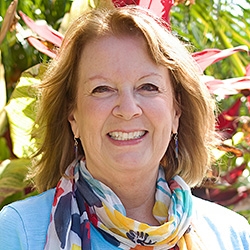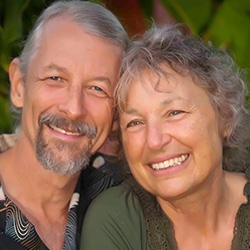
NVC Resources on Exercises and Practices
-
Are you a spiritual seeker who longs for an approach that supports compassion for self as well as profound spiritual transformation? If so, you’ll enjoy this telecourse recording with Robert Gonzales and Leo Sofer as they engage in dynamic discussions about NVC as a spiritual practice.
-
In June, 1996, I had an epiphany. In a motel room in Indiana, the night before returning home from a solo camping trip in Michigan and Canada, I discovered how much I had lost in my life because of so fiercely protecting myself. Up until that day, bringing forth my vulnerable self was to be avoided at all costs, which kept me numb much of the time, disconnected from myself and from much of life. Alone in my room, I cried, I talked out loud, and I finally exclaimed to myself that I wanted to reclaim every last bit of my vulnerability, just like I had it as a child.
-
Please join us as we take a deeper look into this mysterious word, “community.” In this Trainer Dialogue recording, we explore the living process of creating, uniting and nurturing NVC communities so that they transcend yet sustain and empower their members.
-
Trainer Tip: Mary shares how staying present to our anger and finding the underlying feelings and needs can lead to deeper connection and more satisfying outcomes.
-
How can we live life fully connected to the core values of nonviolence, no matter the circumstances, internal or external? Join Miki Kashtan as she shares the 17 core commitments that have served as a compass for herself and hundreds of others around the world as well.
-
Miki explains the distinction between the language and the underlying consciousness of NVC, and the pitfalls of failing to do so.
-
Trainer Tip: When I am in resistance to what is happening in my life, when I'm having a very difficult time enjoying or just being with what is occurring, I like to offer up my gratitude.
-
Often patients need enough emotional space to reduce any inner stuckness in their situation. They need to do this before they can adequately absorb information or effectively take next steps. Empathy can help with this. Empathy requires an intention to connect non-judgmentally. This gets better with practice. Read on for examples of how a situation can play out with, and without, empathy. And the difference it makes in healthcare.
-
In this audio presentation, Jori offers clarity about the three different layers of empathy and the value of differentiating each layer. If you're looking for a daily practice for deepening your empathy skills, this is for you.
-
Listen to Jim and Jori ask each other about the role of gratitude in their daily activities as they share how gratitude can be a primary tool to help us stay present and at peace.










